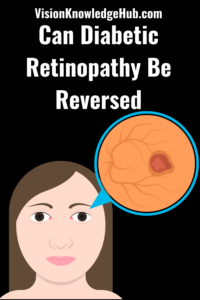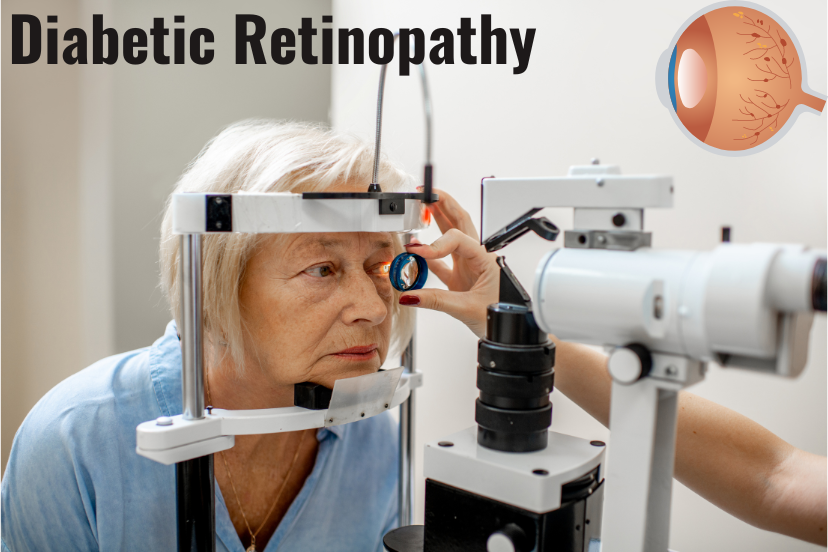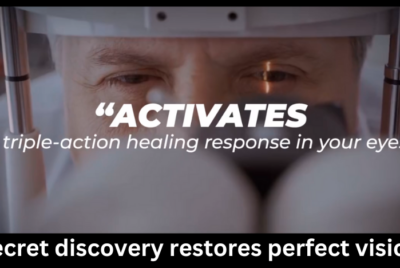Can Diabetic Retinopathy Be Reversed
Explore the truth about can diabetic retinopathy be reversed with evidence-based insights. Dive into treatments, prevention, and holistic care! Uncover the latest treatments, lifestyle tips, and realities of managing this eye condition. Learn how to slow its progression and protect your vision. Don’t miss out! As someone deeply passionate about vision health, I often encounter the concern of whether diabetic retinopathy can be reversed. Diabetic retinopathy, a serious eye condition associated with diabetes, can be daunting. However, the prospect of reversal is not entirely out of reach. In this article, I’ll explore the possibilities, reasons, and actionable steps for potentially reversing diabetic retinopathy.
Understanding Diabetic Retinopathy
Diabetic retinopathy is a progressive eye condition that affects people with diabetes, particularly those with uncontrolled blood sugar levels. It develops over time due to damage to blood vessels in the retina, the light-sensitive tissue at the back of the eye. As blood vessels weaken and leak, vision can become impaired and even lead to blindness if left untreated. It’s important to understand the stages of diabetic retinopathy, ranging from mild nonproliferative retinopathy to advanced proliferative retinopathy.
Definition And Causes
Diabetic retinopathy is a complication of diabetes that damages the blood vessels in the retina. The retina is the light-sensitive tissue at the back of the eye, essential for vision.
Symptoms Of Diabetic Retinopathy
Symptoms of diabetic retinopathy can include blurred vision, floaters, dark spots in your field of vision, and even sudden vision loss. You might also experience difficulty seeing at night. These symptoms often appear gradually, making early detection challenging. If you notice any vision changes, consult an eye specialist immediately for diagnosis and treatment. Regular eye exams can catch the condition early.
Can Diabetic Retinopathy Be Reversed
Factors Affecting Reversal
Various factors influence the journey to potentially reversing diabetic retinopathy. Early detection and intervention play a pivotal role. Regular eye exams can catch retinopathy in its early stages, increasing the likelihood of successful management and even reversal. Lifestyle changes and effective blood sugar control are also critical components.
Lifestyle Changes For Reversal
A balanced diet and weight management are fundamental in managing diabetes and, by extension, diabetic retinopathy. Consuming nutrient-rich foods, controlling portion sizes, and reducing sugar intake can help stabilize blood sugar levels. Engaging in regular physical activity promotes better blood circulation, which is vital for eye health.
Foods To Prevent Diabetic Retinopathy
To help prevent diabetic retinopathy:
- Focus on a diet rich in antioxidants, vitamins, and minerals.
- Include green leafy vegetables like spinach and kale for their vitamin C and E content.
- Opt for berries and citrus fruits that offer potent antioxidants.
Whole grains can help regulate blood sugar, while lean proteins like fish, particularly salmon, provide Omega-3 fatty acids that reduce inflammation. Nuts like almonds contain vitamin E, which promotes eye health. Always remember a balanced diet is a supportive measure and should go hand-in-hand with regular eye check-ups and medical treatments.
Can Diabetic Retinopathy Be Reversed With Diet?
While current research doesn’t show that you can completely reverse diabetic retinopathy solely through diet, you can slow its progression by eating a balanced diet. Incorporating foods rich in antioxidants, like green leafy vegetables, and Omega-3 fatty acids found in fish can reduce inflammation and help manage the condition. A good diet also assists in controlling blood sugar levels, which is crucial in preventing the onset or worsening of retinopathy. However, a balanced diet should complement, not replace, traditional medical treatments. Always consult your eye specialist and healthcare provider for personalized advice. Diet plays a supportive role but isn’t a standalone cure.
Blood Sugar Management
Consistent blood sugar monitoring is non-negotiable for those aiming to reverse diabetic retinopathy. Medications and insulin prescribed by healthcare professionals aid in controlling blood sugar levels and preventing further damage to the retina.
Managing blood sugar levels diligently can’t fully reverse diabetic retinopathy but can significantly slow its progression. Tight glucose control helps prevent the damage that elevated sugar levels can cause to the retinal blood vessels. While medical treatments like laser therapy remain essential, consistent blood sugar management is a vital support mechanism. Consult your healthcare provider for a comprehensive treatment plan, including medical interventions and blood sugar control.
Can Diabetic Retinopathy Be Reversed Naturally?
Current evidence suggests that you can’t entirely reverse diabetic retinopathy through natural means alone. While some natural methods, like a balanced diet rich in antioxidants and regular exercise, can support traditional medical treatments, they’re not a substitute for them. These lifestyle changes can help slow down the progression of the disease and manage symptoms. But when it comes to reversing the condition, medical interventions like laser treatments and medications currently hold the most promise. Always consult your healthcare provider for a tailored treatment plan, which may include both medical and natural therapies for managing diabetic retinopathy.
Medical Treatments For Reversal
Beyond lifestyle adjustments, medical treatments offer hope for retinopathy reversal. Laser treatment and vitrectomy are surgical options that can address advanced retinopathy. Additionally, anti-VEGF injections have shown promise in halting the progression of the condition.
Laser Treatment
One conventional treatment is laser photocoagulation. Laser treatment for diabetic retinopathy aims to seal leaking blood vessels and reduce retinal swelling. Although it can’t reverse the condition, it can stabilize it and prevent further vision loss. It’s often part of a multi-faceted treatment approach.
Medication
Injections of medication directly into the eye can also help control the swelling and bleeding. Medication treatment for diabetic retinopathy often involves injectable drugs that target abnormal blood vessel growth and reduce swelling in the retina. These treatments complement other interventions like laser therapy, helping to stabilize the condition and prevent further vision loss.
Surgery
In extreme cases, vitrectomy removes blood and scar tissue from the eye. Surgical treatment for diabetic retinopathy, such as vitrectomy, removes the vitreous gel and blood from leaking vessels in the eye. This surgery aims to improve vision and halt disease progression and is often used in advanced or complicated cases.
The Power Of Early Intervention
Early intervention is a game-changer when it comes to diabetic retinopathy. Detecting the condition in its initial stages allows for timely management, significantly improving the chances of successful reversal. Regular eye exams are a proactive step in monitoring retinopathy progression.
Can Mild Diabetic Retinopathy Be Reversed?
Current medical understanding suggests that you can’t fully reverse even mild diabetic retinopathy. However, you can halt or significantly slow its progression through early intervention. Treatments like laser therapy, along with stringent blood sugar management, can stabilize the condition. Lifestyle changes such as a balanced diet and regular exercise can also serve as supportive measures. The key lies in early diagnosis and timely treatment. If you catch it in its mild stages and act promptly, you can preserve your vision better. Always consult your healthcare provider for a tailored treatment approach.
Personal Stories And Successes
Real-life success stories serve as a source of inspiration. Individuals who have effectively reversed diabetic retinopathy share their journeys, highlighting the dedication required. These stories underscore the importance of a holistic approach involving medical guidance, lifestyle changes, and consistent monitoring.
The Role Of Holistic Eye Care
While the focus is on retinopathy reversal, holistic eye care remains essential. Prioritizing overall eye health through habits like proper UV protection, staying hydrated, and getting adequate sleep contributes to better eye function and reduces the risk of complications.
Holistic eye care for diabetic retinopathy blends traditional medical treatments with lifestyle modifications for a comprehensive approach. Alongside laser treatments and medications, consider dietary changes rich in antioxidants and Omega-3s to support eye health. Exercise and stress management techniques like meditation can help control blood sugar levels. Nutritional supplements like bilberry extract may offer additional support, but consult your healthcare provider before starting any new supplement.
Challenges And Realities
It’s important to acknowledge that reversing diabetic retinopathy isn’t a guaranteed outcome for everyone. Success can vary based on individual factors, including the stage of retinopathy and overall health. Managing expectations and understanding potential challenges is crucial.
The challenges and realities of diabetic retinopathy include its often asymptomatic early stages, making early detection difficult. Strict blood sugar control, although essential, doesn’t guarantee you’ll avoid the condition. A complete reversal remains elusive even with advancements like laser treatments and medications. Managing co-existing conditions like high blood pressure is also crucial but complicates the treatment plan. Lastly, the emotional toll of facing potential vision loss makes psychological support an essential part of comprehensive care.
Can Proliferative Diabetic Retinopathy Be Reversed?
As of current medical understanding, you can’t fully reverse proliferative diabetic retinopathy, which is an advanced form of the condition. Medical treatments like laser photocoagulation and vitrectomy aim to halt progression and manage symptoms but don’t offer a complete cure. Rigorous blood sugar control remains crucial in supporting medical treatments. Early detection and aggressive intervention significantly improve the chances of preserving vision, even though reversal remains elusive. Always consult an eye specialist for a personalized treatment plan that will likely combine medical therapies with lifestyle adjustments.
Consulting Healthcare Professionals
Seeking guidance from healthcare professionals is paramount. Every individual’s situation is unique, and personalized medical advice is essential for creating an effective strategy for retinopathy management and potential reversal.
Conclusion
In vision health, the possibility of reversing diabetic retinopathy exists for those willing to take proactive steps. While individual success varies, early detection, lifestyle changes, blood sugar management, and medical treatments collectively contribute to the potential for retinopathy reversal. Remember, consulting healthcare professionals and embracing a holistic approach are key to achieving the best outcomes for your eye health journey.
Please note that this article should not replace professional medical advice. Consult a healthcare professional for an accurate diagnosis and tailored treatment plan.
Frequently Asked Questions (FAQs)
Is reversal possible for everyone with diabetic retinopathy?
Complete reversal of diabetic retinopathy isn’t currently possible for anyone, based on existing medical knowledge. However, early detection and timely treatment can significantly slow its progression and help manage symptoms, improving the chances of preserving vision.
Can diabetic retinopathy affect only one eye?
Diabetic retinopathy typically affects both eyes, but their severity can vary. It’s uncommon for the condition to impact just one eye. Regular eye exams can help monitor both eyes for any signs of this condition.
How long does it take to see results from reversal efforts?
The time to see results from reversal efforts for diabetic retinopathy varies. Some people notice stabilization within months of initiating treatment and lifestyle changes, while others may take longer. Consistent monitoring through regular eye exams is essential.
Can vision be restored after diabetic retinopathy?
Vision loss to diabetic retinopathy is generally irreversible, but treatments can stabilize the condition and prevent further vision loss. Laser therapy and medications can help manage symptoms and preserve remaining vision. Early intervention increases the chances of maintaining eye health.
Can laser treatment alone reverse diabetic retinopathy?
Laser treatment alone can’t reverse diabetic retinopathy but can stabilize the condition and prevent further vision loss. It aims to seal off leaking blood vessels and reduce swelling, which is crucial to a comprehensive treatment plan.
What worsens diabetic retinopathy?
Poor blood sugar control, high blood pressure, and elevated cholesterol levels can worsen diabetic retinopathy. Smoking and lack of regular eye exams also contribute to the condition’s progression. Timely medical intervention is essential to manage these risk factors.
Extra FAQs About Diabetic Retinopathy Reversal
Can diet alone reverse diabetic retinopathy?
Diet alone can’t reverse diabetic retinopathy. While a balanced diet can support medical treatments and help manage blood sugar levels, it’s not a substitute for medical interventions like laser therapy and medications, which are essential for treating the condition.
Are lifestyle changes alone sufficient for reversal?
Lifestyle changes alone aren’t sufficient for reversing diabetic retinopathy. While they can support medical treatments and slow the disease’s progression, a comprehensive approach involving medical interventions like laser therapy and medications remains crucial for effective management.
Can diabetic retinopathy be stopped?
You can’t fully stop diabetic retinopathy, but you can slow its progression significantly. Early diagnosis and treatments like laser therapy and strict blood sugar control can help manage the condition and preserve vision.
How long does it take to go blind from diabetic retinopathy?
The time it takes to go blind from diabetic retinopathy varies widely among individuals. Some may experience rapid vision loss within months, while others may take years. Early detection and treatment can slow down this progression significantly.
Are there any natural remedies for diabetic retinopathy?
While some natural remedies like antioxidant-rich foods and exercise can support traditional treatments, they can’t replace them. Natural methods may help slow the disease’s progression but should be part of a comprehensive treatment plan, not standalone solutions.





